THEOLOGICAL STATEMENT ON DEVELOPMENT
February 2025


February 2025

Baptist World Aid Australia is the aid and development arm of the Australian Baptist Movement.
From the beginning, the biblical storyline describes God’s intentions for the emergence of a world filled with healthy, vibrant creatures living in safe, just, participatory, and equitable communities who are lovingly engaged with God.1 This is fullness of life.
Central to the realisation of this vision is the role of humankind. Created ‘in God’s image’, human beings are to function as God’s representatives. We’re to share equitably in the earth’s abundance and in the construction of our communities, while stewarding the earth and its resources in a way that fulfills God’s purposes. 2
Sadly, humankind fails to live as called, 3 resulting in the fracturing of relationships with God, within communities and with the earth. As a result, violence, poverty,4 exclusion, oppression, injustice, greed and false worship become part of the human experience. Humanitarian crises are frequent in this fractured world. 5 Gender and disability often become markers for disproportionate suffering. 6
When sin entered the world God’s good design was ruptured by evil. God however does not abandon creation but sets about redeeming and restoring it. Most definitively through the life, death and resurrection of Jesus, God sets about overturning injustice, violence, poverty and exclusion.7 And God creates communities of faith, justice, inclusion, hope and peace to work together in re-establishing shalom with God, all people and creation, 8 that will be fully realised upon Christ’s return. The concept of shalom is at the heart of our vision for a better world for all. A better world for all means answering Jesus’ call to follow him into hard places—to restore, rebuild and reconcile a broken world.
Shalom provides a rich concept of development as the process by which people can realise right relationships with God, one another and the earth. This constitutes life in all its fullness. People are aware of God’s presence; know themselves to be loved and valued by God; and allow God to inform their values, ambitions, lifestyle and sense of meaning.
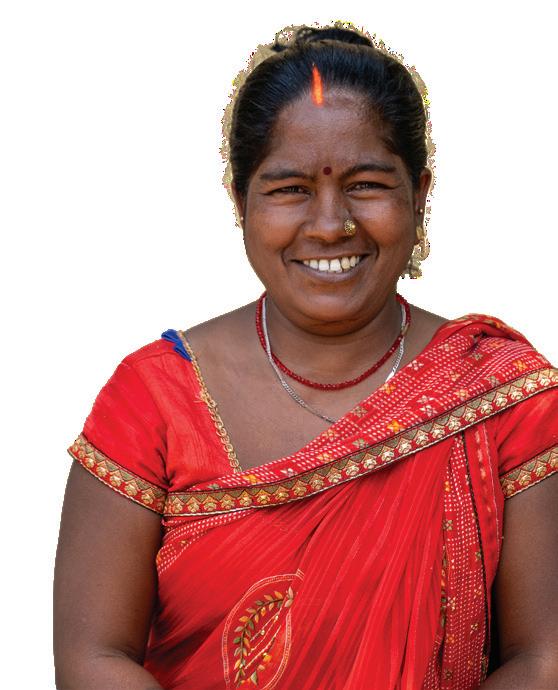
People are aware of God’s presence, know themselves to be loved and valued by God; and allow God to inform their values, ambitions, lifestyle and sense of meaning.
People live in communities where they are physically and emotionally safe, where they feel welcomed, valued and loved; where social structures ensure justice, equity and opportunity to participate in social life and decision makeing.
People are physically, emotionally, mentally and scocially capbale of living in positive relationships with others, creaation and God.
People are physically nourished by the produce of the earth, enjoy its beauty; share in development of the earth’s productivity; and act to ensure all earth’s creatures enjoy its beauty.
People live in households where they feel safe and loved; have opportunity to learn grow, and mature; experience intimate, loving and interpersonal relationships; and where there is adequate provision for their most important needs.
Poverty is pronounced deprivation in well-being. But what precisely is deprivation?
‘To be poor is to be hungry, to lack shelter and clothing, to be sick and not cared for, to be illiterate and not schooled. But for poor people, living in poverty is more than this. Poor people are particularly vulnerable to adverse events outside their control. They are often treated badly by the institutions of state and society and excluded from voice and power in those institutions.’ (World Bank, World Development Report 2000/2001). 9
Poverty, as defined above, stands in stark contrast to the developmental vision of God’s word. At the heart of the Biblical discussion of poverty is the conviction that poverty has its origins in humankind’s failure to properly image God. That is, poverty is not a natural state but is the product of a breakdown in social relations.
Consistent with the affirmation that a good God created a good world, the Bible does not ascribe poverty to a failing on the part of God or the earth. The earth is ‘cursed’ in Genesis 3, which makes its productivity more difficult to harness,10 but it never ceases to be good, that is, it never ceases to be fit for the purpose of sustaining the earth’s creatures.11
The fundamental driver of poverty is that, unlike God and the earth, people have ceased to be good. On occasion it may be that the failure lies with those who fall into poverty.12 This however is a very minor feature of the Biblical narrative. The dominant theme is that people become poor and stay poor because of neglect, oppression and exploitation at the hands of those who are more powerful.
Importantly, the rich are guilty both of sins of ‘commission’ against people in poverty such as violence and withholding wages14 and sins of ‘omission’ such as neglecting to be generous15 and failing to create inclusive social and economic systems.16 This represents a violation of people’s rights of the poor. a result, it’s the responsibility of all, but particularly those with wealth and power, to ensure all people have access to the resources they need to sustain their well-being. This is why Biblical justice demands both personal attention to the plight of those living in poverty and the construction of social, political and economic systems that serve the interests of people living in poverty.

It’s widely acknowledged that humanitarian crises—including those caused by natural hazards, man-made disasters and conflict—impact on people’s development and can further exacerbate issues of poverty. When considering the significance of disasters and humanitarian crises, biblical writers operate from three perspectives.
First, it was commonly believed that God was directly behind all events and that disaster, therefore, came from the hand of God as an act of judgement.18 In these instances, the appropriate response to disaster includes repentance. However, several biblical writers reject the notion that disasters are necessarily an act of judgement,19 and Jesus did not ascribe all suffering to the hand of God. Asked by his disciples whether a man was born blind due to his own sin or the sin of his parents, Jesus rejected both explanations and said instead that it was an opportunity for God to show his glory through the healing of the blind man. 20
A second perspective found within the Bible is that disaster and humanitarian crises can come at the hands of other human beings. The Egyptians enslaved the Israelites, governments took on beastly characteristics as they oppressed their populations, 21 and Herod slaughtered the children of Bethlehem. 22
A third biblical perspective is that crises are part and parcel of living in a broken world. In Romans 8, the apostle Paul speaks of the creation being subject to frustration. Creation is personified, frustrated because it was unable to fulfil its purpose of being a hospitable and plentiful home for humankind and the animals. However, this pain, like that of a woman in childbirth, signals the imminent arrival of something beautiful and good. Creation cries out in anticipation of the healing that will come in the coming of Christ. In this vision, suffering and disaster and humanitarian crises are not directly attributable to any person but a part of the brokenness of our world.

The Bible provides a theological framework for understanding the role humans play in causing crises. Genesis 1:26–28 recognises that humans were created in the image and likeness of God and commissioned to steward the earth and its creatures. Humans are God’s earthly representatives and the earth, and its creatures were to be ruled in a manner befitting this—with love, generosity, grace, care, kindness. Within the biblical storyline humankind dismally fails in this task, instead managing the earth with greed, violence, and self-aggrandisement. Not only did this mismanagement contribute to crisis and conflict but also resulted in a disproportionate imbalance of the most vulnerable experiencing the impacts most heavily.
For most of history, human impacts on the earth were localised but now, in an age of globalisation, the impact is far reaching. Human behaviour is resulting in large-scale deforestation, loss of biodiversity, the acidification of the oceans, the disruption of the nitrogen and phosphorus cycles, and may yield catastrophic and exponential transformations in the ecological systems of the planet with devastating consequences for all life on earth.
As followers of Jesus, Christians should not interpret crises as punishment for sin but as a sign of the brokenness of creation that God is already at work restoring through God’s people . Christians are not immune to suffering. The message we carry into times of crisis disaster is not one of condemnation, but one of lamentation when appropriate and ultimately one of hope. Crises are a sign that the world is broken and in need of God’s restorative healing. The presence of the church in both its local and global forms should be as an agent of restorative healing.
In the Bible we see the need to worship God amid disaster 23 and to be a community that supports one another, founded on the principle of love. Israelites were to love one another, which meant looking out for the interests of each other rather than simply one’s own interests. This principle was to be seen not only at an interpersonal level but also implemented in the social, economic and political systems of the nation.
This notion continues into the New Testament where Jesus called for the restoration of Israel as a community in which grace, love, and generosity were practised. The rich were to stop exploiting the poor and instead share their wealth. Individuals were to loan to those who were in need even when they are unable to repay, and his followers were to respond with gracious care to anyone who is in need—the hungry were to be fed, the naked clothed, and the stranger shown hospitality. 24
The New Testament Church took up Jesus’s call to be a community of care. According to the book of Acts, when the early church began meeting, believers who had assets would liquidate them to support those who fell into hardship. 25
One of the common themes in the Wisdom literature26 is the need for preparation for any challenges that may lie ahead. The wise person prepares for the future, the foolish person does not. Preparation is an act of discipleship, leading to the building of communities resilient to the physical, emotional and spiritual impact of disasters.
For example, Joseph was a man of divine insight and wisdom. And famine was the most significant threat to well-being in the ancient world. It’s instructive to note that Joseph rose from slavery to high status within the Egyptian court, where his responsibilities included preparing for famine. Joseph, filled with wisdom from God , and local insight and experience, oversaw a program in which grain was set aside in the good years to be ready for use in times of famine. Unknown to Joseph, his preparedness forged the way for his family to survive—from whom the nation of Israel would descend. 27
For more on disaster resilience as a part of discipleship, see the Theology of Disaster Resilience from Church Agency Network.
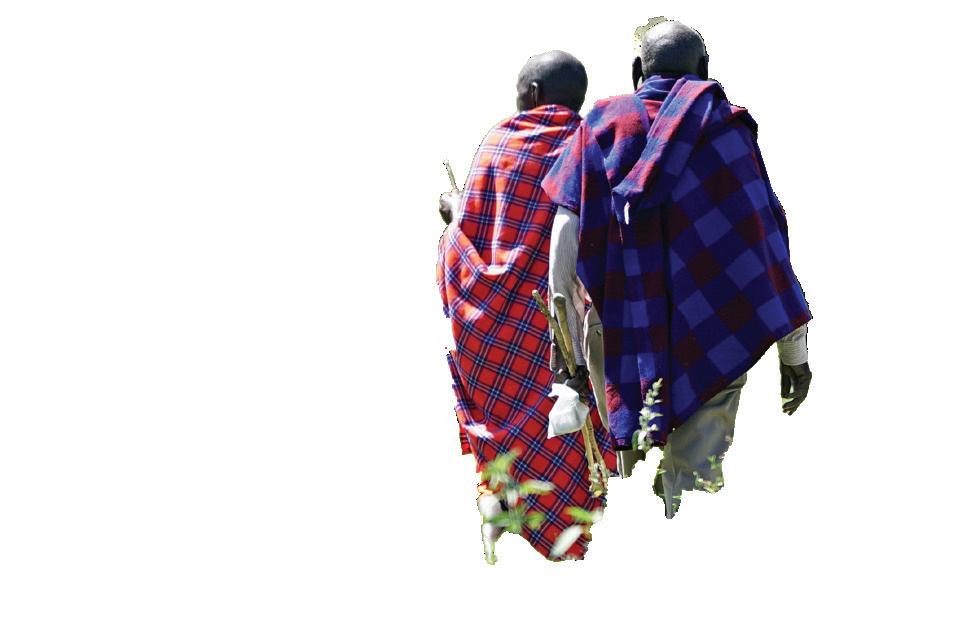
The Bible tells us that all people were made in the image of God, 28 and therefore reveal God and are all equal before God. All people have intrinsic value in the eyes of God as part of creation, not because of their behaviour, stage of life, or any other reason.
Broken relationships in communities and across the world have resulted in significant inequality between people as well as injustice and oppression. Certain aspects of a person—such as their age, gender, sexuality, (dis)ability, ethnicity or race—can increase their access to resources and opportunities or their risk of poverty and exclusion. Gender is a common cause of exclusion (or inclusion), however when gender intersects with other things such as age or disability, this can cause people to have more or fewer opportunities, access and agency in society and in their development.
Jesus demonstrated God’s love in the way he accepted and ministered to all people and intentionally reached out to the marginalised people in communities, such as lepers, 29 those who had been exiled from community, 30 those marginalised due to disability 31 and those considered sinful. 32
Likewise, we value the gifts, knowledge and experiences of all people, recognising we need each other. The body of Christ in its diversity collectively reflects the image of God. The church as God’s witness must be committed to loving all and sharing God’s grace to all—through word and deed .
While women and girls continue to be disproportionally affected by marginalisation and injustice across the world, our development work will prioritise gender equity to target some of the drivers of their marginalisation, including access to economic opportunities, improved and appropriate healthcare, and quality education.
The Bible teaches that relationships between genders are to be characterised by mutual submission. equal dignity, such as having theological conversations with the woman at the well34 appreciating the patronage of women, act of Mary sitting at his feet in the place of a disciple, commending women for their recognition of who he was, 37 and acknowledging the role of women as eye witnesses of his resurrection.
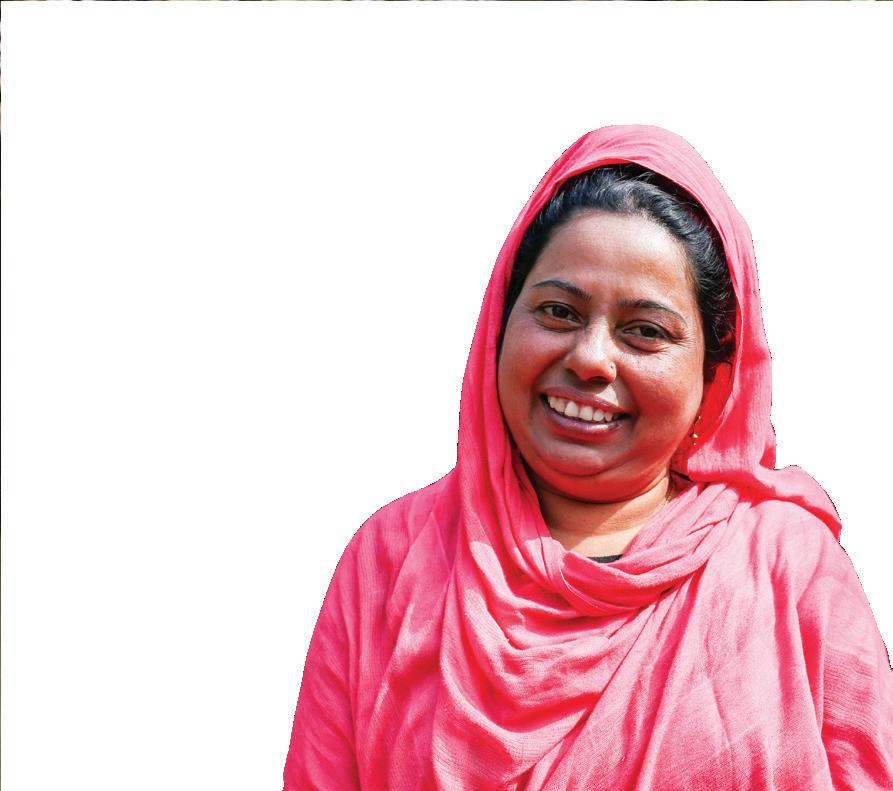
Paul names women as church leaders, apostles and fellow workers and sees them as critical to the building of the church as men. 39 When men act as though they are greater or more important than women, this is a characteristic of the Fall40 rather than of Jesus’ reign.
Across our work we will prioritise social inclusion, both in dealing with the impacts of inequity and exclusion—such as intimate partner violence, lack of education opportunities for girls and women, routine discrimination against and exclusion of people with disability, or elderly people being at higher risk during disasters due to reduced mobility—as well as supporting communities to be places of flourishing for all. We will ensure we provide opportunities for all people to share in the development of their communities and to make decisions about things that affect them.
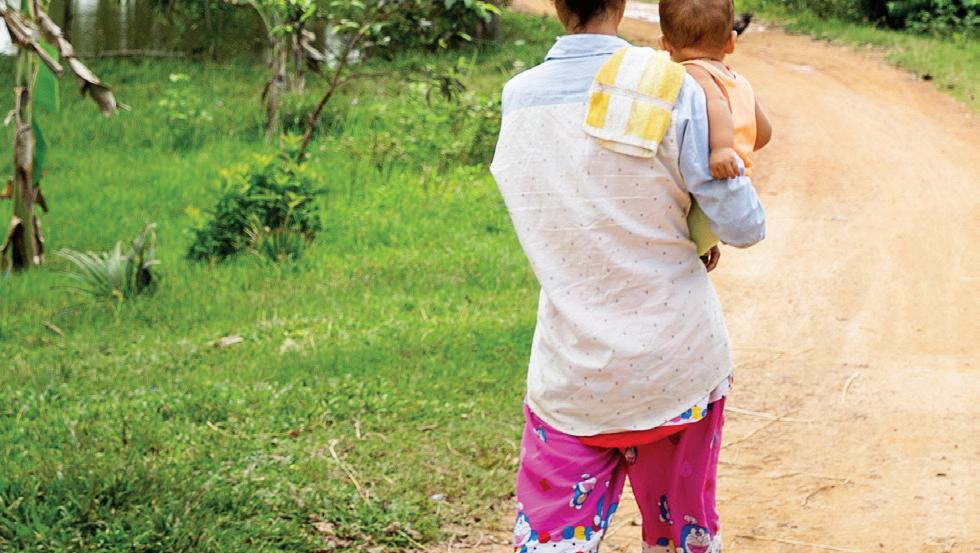
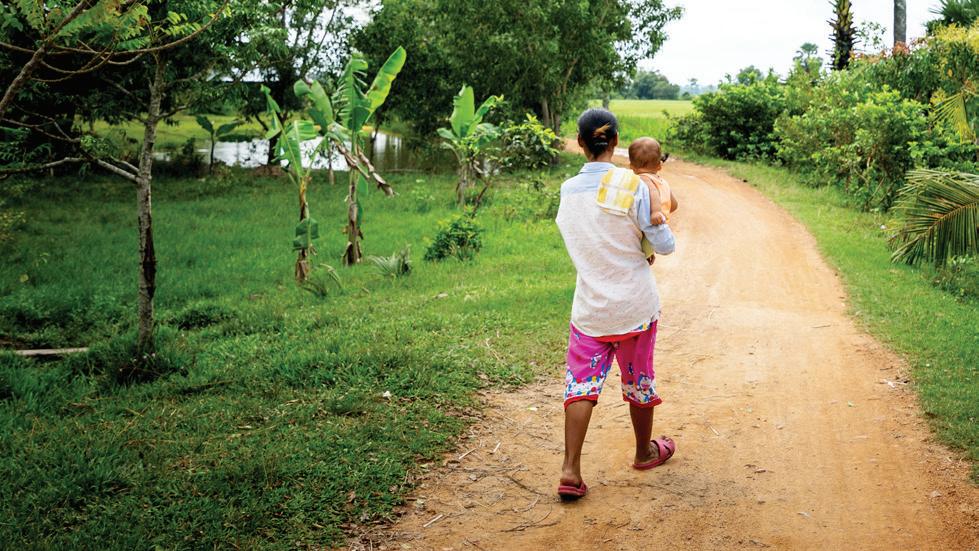
The Bible reveals that God’s mission is to bring wholeness to all creation, which includes bringing human beings into right relationship with God, one another and the creation. While the restoration of right relationship between God and humankind is achieved through the life, death and resurrection of Christ to which the church bears witness, God’s wider mission to communities and creation is accomplished through a variety of agents, such as the earth itself, government, households, individuals, and the church.41
In supporting development work, the church should never surrender its unique role as witness to Christ and the centrality of this role in the restoration of right relationship between God and human beings. No other agent can fulfil this role. Nor should the church forget that when pursuing the wider developmental vision of Scripture (right relationships within communities and with creation) the church is but one of many agents God uses. The church’s knowledge of God allows it to champion a vision of an inclusive, equitable, just and peaceful world for all. The reality that it is one of many agents for bringing such a world into being should see the church partnering with individuals, households, communities and governments to realise this vision.

Baptist World Aid Australia sees human development as people and communities moving toward right relationship with God, one another and the earth. We believe any view of development that neglects any of these dimensions falls short of pursuing God’s intention for fullness of life for all.
We also affirm that development is multifaceted and incorporates every dimension of life and involves civil society, business and government. This means it’s impossible for any organisation to assume responsibility for the entire development process. Rather, groups must specialise. Baptist World Aid Australia chooses to specialise in helping communities lift themselves out of poverty.
Both development theory and Biblical teaching suggest people live in poverty because they live in social, political and economic systems that deny them access to the resources they need to improve their well-being.
This has significant implications for how we work with communities in poverty.
1. We recognise that people are rarely poor because they lack faith in God. Indeed, Scripture commonly identifies as ‘the poor’ as righteous.42 People live in poverty primarily because of dysfunctional and unjust relationships within their communities and the wider human community. While those living in poverty need the gospel as much as any other human being, as an agency dedicated to relieving poverty, Baptist World Aid Australia’s focus is not evangelism per se but on addressing the drivers of poverty.
2. As a church-based organisation committed to a Biblical view of development we consider it important that our work complement other dimensions of the mission of the church, including its task of evangelism. We do this by working with Christian Partners, thereby strengthening their capacity to demonstrate the love of God to people living in poverty and building relationships across which faith may be shared.
3. Because poverty is more complex than a simple lack of material things, our work focuses on community development , alongside humanitarian aid. That is, we do not simply provide people living in poverty with the material goods they lack but work to help people transform the systems in which they live so that they’re able to access and utilise the resources they need to lift themselves out of poverty.
4. We see disaster resilience and humanitarian aid as opportunities to encourage the discipleship of preparation and to show love. We respond acknowledging that those who suffer as a result of certain disasters have often contributed the least to the causes of those disasters.
5. We promote the theological basis for creation care, recognising that many of our local country Partners are already conscious of the complex interweaving of relationships of humans with God, each other and the earth.
6. We seek to be on the forefront of promoting gender equity and social inclusion in our work, recognising marginalisation and injustice as a primary cause of poverty, and a primary consideration in community development and humanitarian aid. We do this in a biblically sound and culturally sensitive manner.
7. Because Australians participate in global social, political and economic systems that contribute to poverty, Baptist World Aid Australia considers pro-poor development framing—that is, development led/driven by the people it seeks to serve—mong its Australian support base an integral part of our work. We seek to engage our supporters in a Biblically shaped, developmentally informed, whole-of-life engagement with people living in poverty. That includes: framing poverty as a justice issue; giving generously to promote greater global equity; consuming ethically; advocating for just government and international and business practices; as well as praying regularly for justice for people living in, and emerging, from poverty.
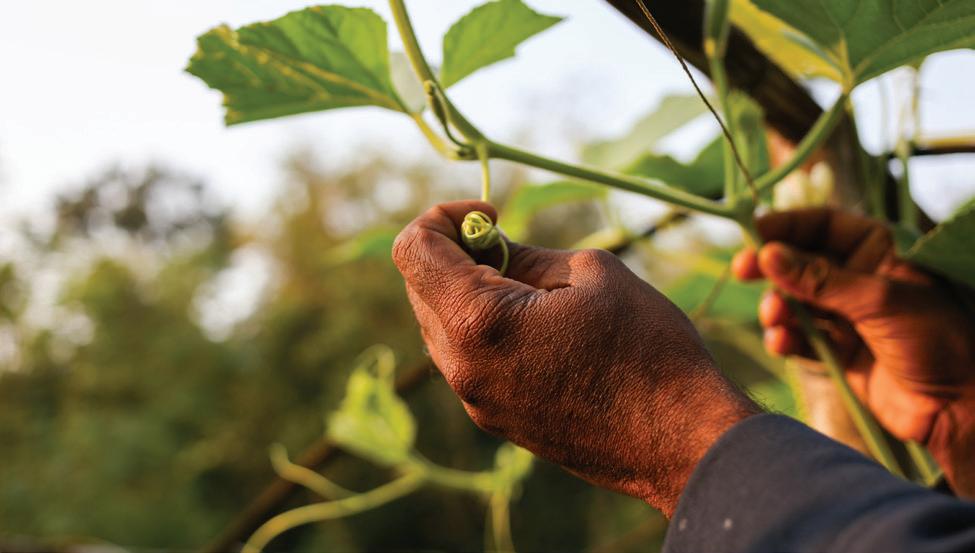
1 Genesis 1–2
2 Genesis 1:26–28
3 Genesis 3
4 The dominant refrain in the Bible is that people are in poverty because of human abuse of power (see 1 Samuel 8:10–18, Proverbs 13:23, 22:16, 29:7, Isaiah 1:10–31; 58:1–14, Amos 1–2; 4:1–3; 5:11–12, and James 5:1–5). On very rare occasions, people are described as having found themselves living in poverty because of their own failings (see Proverbs 10:4, 20:13, 21:17, and 23:21).
5 For biblical examples, see the Flood (Genesis 6-9) and the Plagues (Exodus 1-19).
6 Jesus demonstrated God’s love in the way he accepted and ministered to all people, intentionally bringing those on the outside in, such as lepers (Mark 1:39-45), those who had been exiled from community (Mark 5:1-20, Mark 4:6-30), those marginalised due to disability (Mark 10:46-52) and those considered to behave inappropriately (Luke 7:36-50, Luke 19:1-10).
7 Genesis 8:22, Psalm 104, Matthew 5:43–48, 1 Timothy 4:4, Acts 14:17. The Old Testament does speak of God bringing disaster as an act of judgment (Leviticus 26, Deuteronomy 28), but these actions are also seen as extraordinary and exceptional.
8 Romans 8:18–25. All creation is crying out for release from bondage to decay. Thus, creation care is an important component of our partnership with Jesus.
9 These descriptions of poverty summarise findings from the World Bank’s Consultations with the Poor project in which Participatory Poverty Assessments were conducted extensively across 23 countries.
10 Genesis 3:17–19
11 See Genesis 8:22, Psalm 104, Matthew 5:43–48, 1 Timothy 4:4, and Acts 14:17. The Old Testament does speak of God bringing disaster as an act of judgment (Leviticus 26, Deuteronomy 28), but these actions are also seen as extraordinary and exceptional. The normal pattern is to affirm the earth’s productivity.
12 Proverbs 10:4; 20:13; 21;17; 23;21
13 See 1 Samuel 8:10–18, Proverbs 13:23, 22:16, 29:7, Isaiah 1:10–31, 58:1–1, Amos 1–2, 4:1–3, 5:11–12, and James 5:1–5
14 James 5:1–5
15 Matthew 25:31–46
16 Leviticus 25
17 Proverbs 31:8–9
18 For example, the flood in Genesis 6–9, or plagues upon Egypt in Exodus 1–19, or the repeated warnings through the prophets that neighbouring powers would invade Israel.
19 See Job and Ecclesiastes
20 John 9:1–12
21 Daniel 7 and Revelation 13–18
22 Matthew 2
23 Psalm 46
24 Matthew 25
25 Acts 2–4
26 Proverbs, Job, Ecclesiastes, and Song of Songs
27 Genesis 37–50
28 Genesis 1:27
29 Mark 1:39-45
30 Mark 5:1-20, Mark 4:6-30
31 Mark 10:46-52
32 Luke 7:36-50, Luke 19:1-10
33 Ephesians 5:21
34 John 4:1–42
35 Luke 8:1–3
36 Luke 10:38–42
37 The Samaritan Woman, and Martha, see John 11:21–27
38 John 20:11–18
39 Romans 12
40 Genesis 3:16
41 See Genesis 8:21–22, Psalm 104; Matthew 5:45, Acts 14:17, Romans 13, and Proverbs 31:1–9
42 See Psalm 37:14, 40:17, Mark 12:42–43, Romans 15:26, 2 Corinthians 8:9, and James 2:5